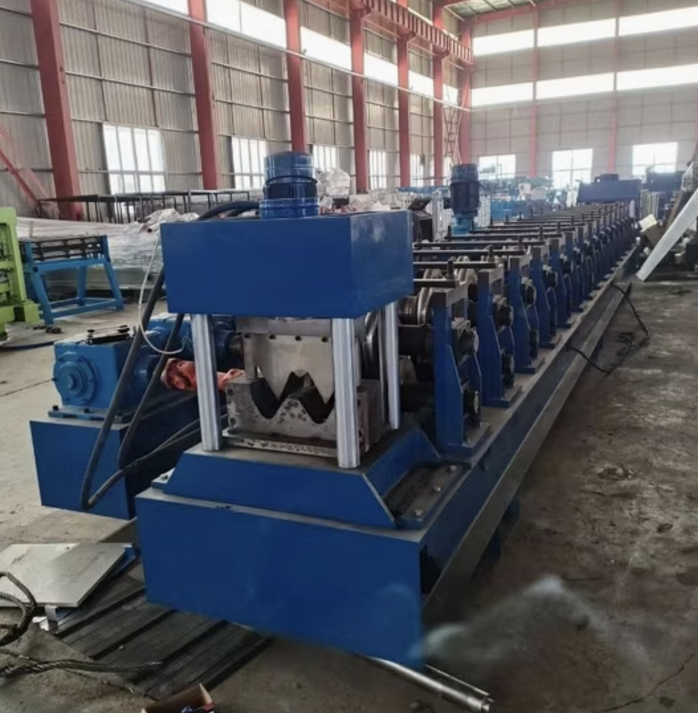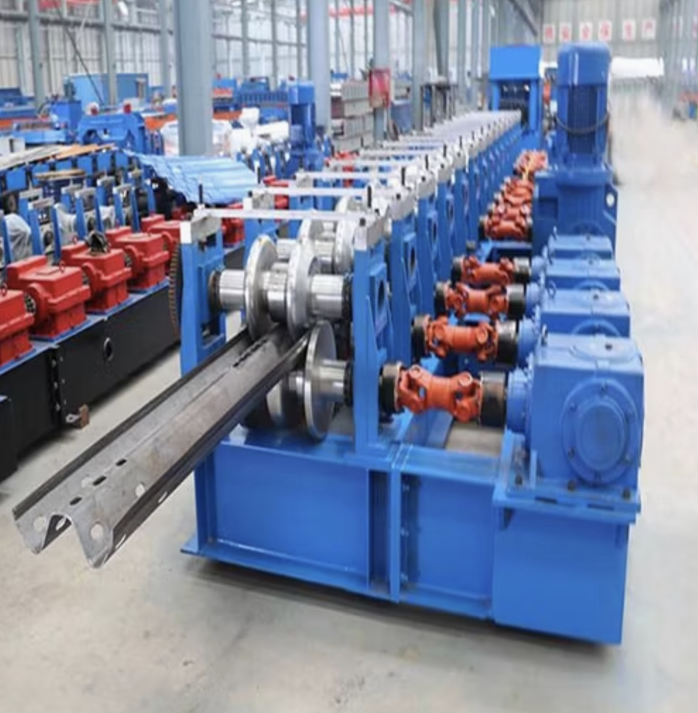To express an interest in this machine please submit the form below.

Not Sure What Machine You Need?
Select Your Profile, We'll Match It
Choose your desired profile drawing, and let Machine Matcher connect you with the best roll forming machine tailored to your needs.
Browse Profiles


A Crash Barrier Roll Forming Machine is a specialized piece of equipment designed to manufacture highway guardrails and crash barriers used in road safety applications. These machines are tailored to produce W-beam, Thrie-beam, and other standard profiles compliant with U.S. standards, such as AASHTO M180. The crash barriers produced by these machines are essential for protecting vehicles and minimizing the impact of accidents on highways, bridges, and other critical infrastructure.
This machine is engineered for durability, precision, and efficiency, making it an ideal solution for large-scale production of crash barriers. Its modular design allows for customization to meet the specific profile dimensions, material gauges, and local regulatory standards in the USA.
Q1: What types of profiles can the machine produce?
The machine can produce standard W-beam, Thrie-beam, and custom crash barrier profiles based on U.S. requirements, including AASHTO M180 specifications.
Q2: Can this machine handle U.S. steel grades?
Yes, the machine is designed to handle steel grades commonly used in the U.S., including ASTM A1011 and AASHTO M180 compliant materials.
Q3: How do I ensure the machine meets U.S. safety standards?
The machine is equipped with OSHA-compliant safety features, including protective guards, emergency stop systems, and detailed safety documentation.
Q4: What is the expected lifespan of the machine?
With proper maintenance, the machine can last 15-20 years, thanks to its high-quality construction and durable components.
Q5: What maintenance is required?
Regular maintenance includes lubrication of moving parts, inspection of hydraulic systems, and periodic calibration of cutting and punching dies.
Q6: Can I customize the punching patterns?
Yes, the hydraulic punching system can be customized to produce specific hole and notch patterns based on your project requirements.
Q7: Is training provided for operation?
Most suppliers offer on-site or virtual training for machine operation, troubleshooting, and maintenance.
Q8: What is the delivery timeline to the USA?
Delivery usually takes 60-90 days, depending on customization and shipping arrangements.
Q9: What should I consider before purchasing this machine?
Consider factors like power requirements (U.S. standard is 480V/60Hz), profile specifications, production volume, and compliance with local safety and quality standards.
Q10: Is financing available?
Many suppliers offer financing options or work with third-party financial institutions to support U.S. buyers.
Copyright 2026 © Machine Matcher.